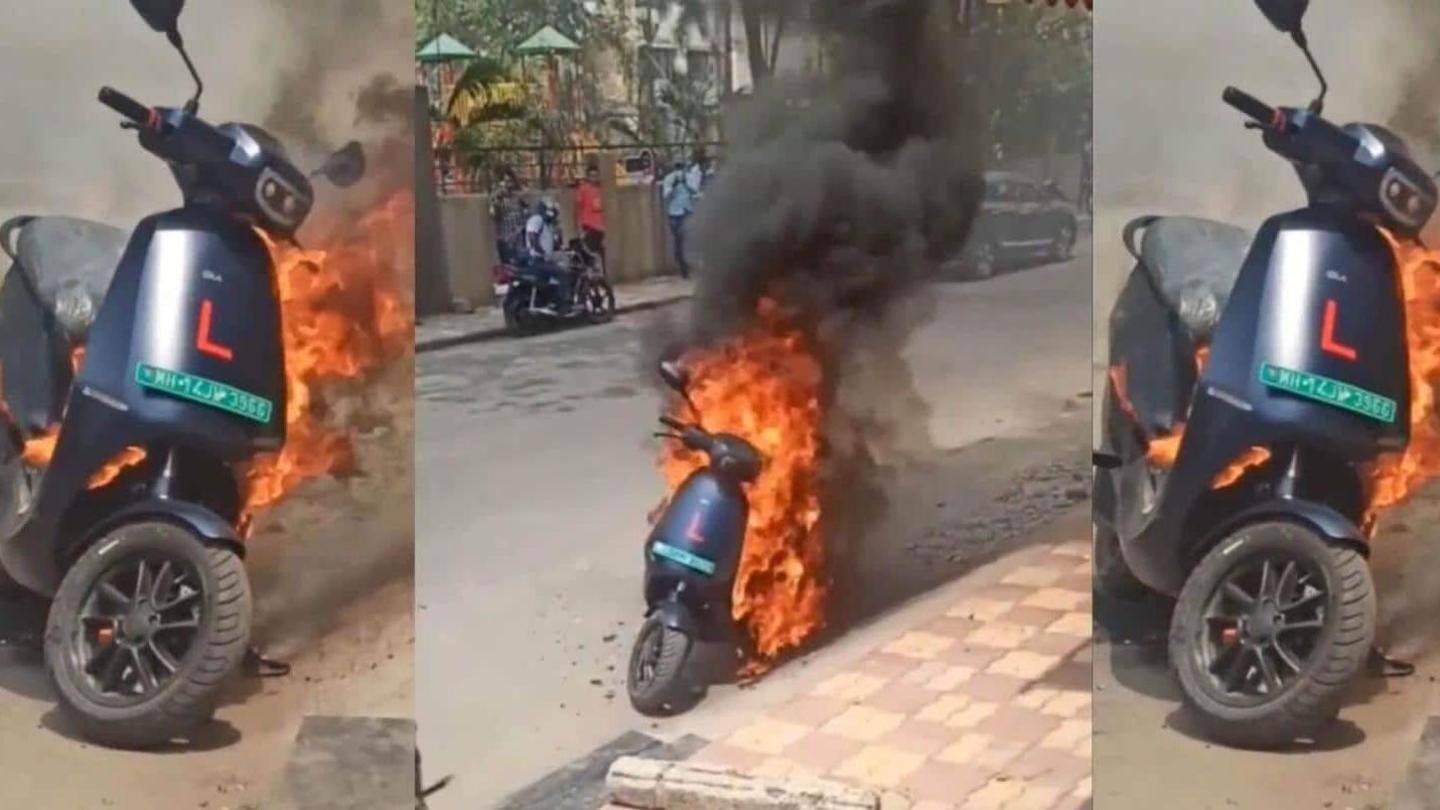
Centre issues new regulations on battery safety for electric vehicles
What's the story
The Centre has issued new regulations regarding the safety of EV batteries after a series of fire incidents shook the industry recently.
The Union Transport Ministry has issued a draft notification to enforce stringent testing norms from October 1 onward.
Almost every Indian EV maker has provided full support to the new regulations related to additional safety requirements.
Context
Why does this story matter?
Almost every automaker across the globe has been developing new or electrifying existing products, as the industry is slowly moving toward green mobility solutions.
India has seen vast growth in EV manufacturing.
However, with the recent fire incidents, the Centre is now introducing stricter safety regulations regarding the Battery Management System (BMS) to better detect/monitor anomalies in case of thermal runaway.
Incidents
EVs from various automakers caught fire this year
In April this year, incidents of EV fires were reported for various automakers such as Ola Electric, Okinawa Autotech, and PureEV. This prompted the government to stop all EV makers from launching new products for a while.
A thorough investigation revealed certain flaws in the existing BMS systems, as they were unable to detect and prevent thermal runaways during the peak summer season.
Requirements
MoRTH has laid down new safety requirements for all EVs
The Ministry of Road Transport and Highways (MoRTH) has issued stringent testing norms for cells, battery packs, and the battery management system (BMS) to prevent fires in electric vehicles.
These include the addition of a 'safety fuse' for the battery, four mandatory sensors, alerts for over-voltage, over-charge, over-discharge, over-temperature, over-current, as well as short-circuit protection in the BMS system.
Support
'Stringent norms will instill confidence among buyers'
"The battery safety recommendations by the expert committee will ensure that EV batteries operate safely under various conditions, including water ingress, over-voltage, and other abnormal conditions," says Anant Nahata, Managing Director, Exicom.
He also added that the move is a positive one and it will instill confidence in potential customers.
Almost every Indian EV maker has supported the introduction of the new regulations.